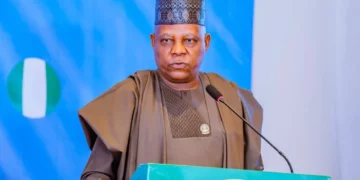Stakeholders, including policymakers, activists, and international partners, have called for urgent legislative reforms, inclusive policymaking, and the use of storytelling to address the escalating crisis of Gender-Based Violence (GBV) in Nigeria.
The appeal was made during the 4th Arts Festival held yesterday in Abuja to mark the 16 Days of Activism Against (GBV).
The event, themed “We Are Here Now,” was organized by the Beeta foundation and focused on amplifying survivors’ voices and promoting gender equity through creative expression.
The founder of the Beeta Foundation Bikiya Graham, highlighted storytelling as a powerful tool to raise awareness, challenge harmful societal norms, and inspire action against GBV.
“We do not underestimate the soft power and influence that storytelling and entertainment have,” she said. “We hope this will provoke thought and inspire collective action to address GBV in our society.”
The festival featured impactful performances, including spoken word poetry and a screening of the movie Me Too, which highlighted the harsh realities of GBV.
Graham also explored the role of technology, particularly artificial intelligence (AI), in combating online abuse, emphasizing its potential to address GBV in digital spaces.
She further called for robust legislative measures to combat GBV, stressing the importance of prosecuting perpetrators and ensuring justice for survivors to promote accountability and deterrence.
For his part, the U.S. public diplomatic counselor Lee McManis reaffirmed the United States’ commitment to supporting Nigeria in its efforts to address GBV.
“We partner with Civil Society Organizations (CSOs) and government officials to stand against this scourge,” he said. “It’s a global fight, and we are dedicated to working with Nigerian stakeholders to tackle the issue.”
Similarly, The festival director, Lyndsey Efejuku, emphasized the need to break the pervasive culture of silence surrounding GBV.
“A lot of the time, people don’t want to speak out. Something happens, and they just go into their bedrooms and stay quiet about it,” she said. “We need places where people feel safe, can tell their stories, and know someone will listen.”
Also, the executive director of Gender Strategy Advancement International (GSAI), called for increased representation of women in legislative and policymaking roles to ensure that gender issues are prioritized.
“The reduction of women in parliament has shown that gender conversations are often deprioritized,” she said. “We need more women as gatekeepers to support other women and elevate these conversations at the policy level.”
She stressed that by leveraging technology and advocating for systemic reforms, Nigeria can move toward a safer and more equitable society for all.





